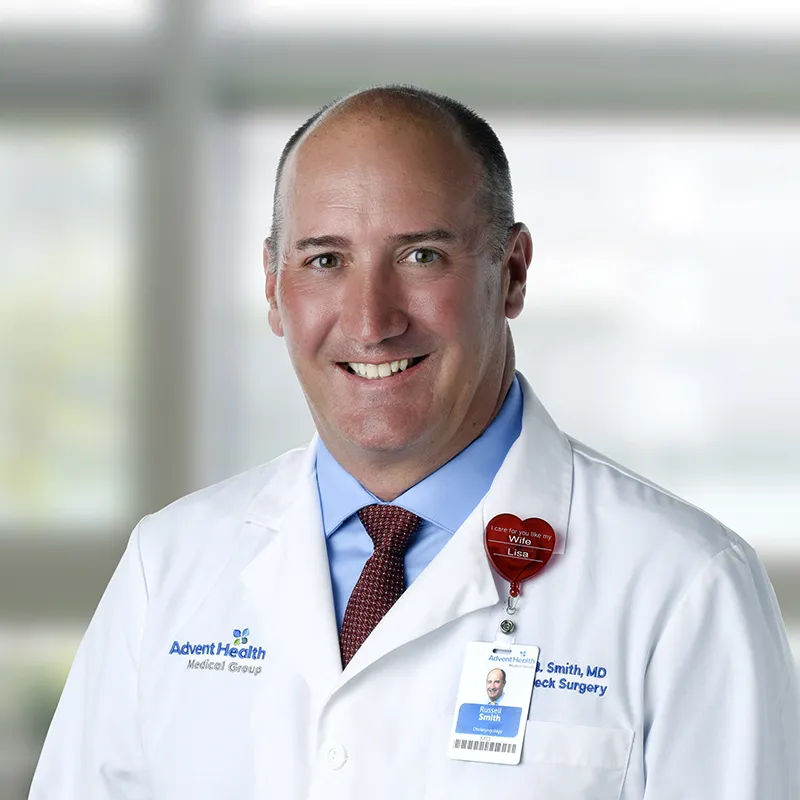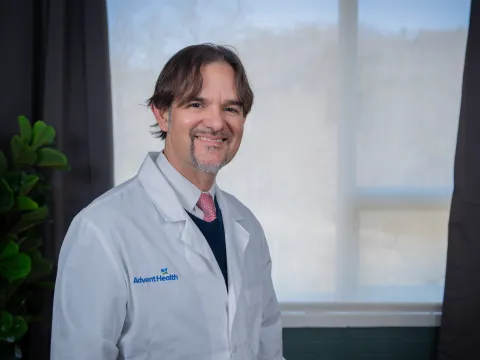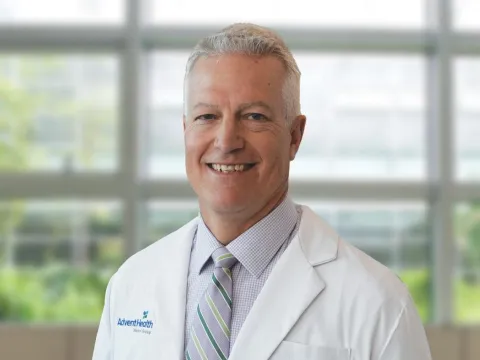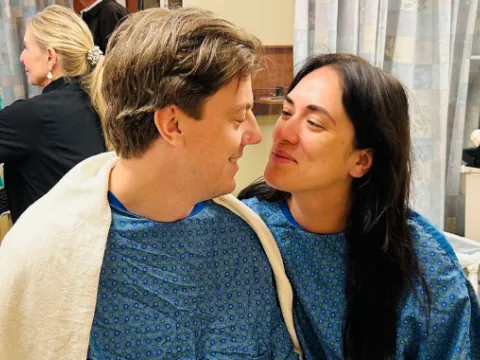- Kristi Powers
Choose the health content that’s right for you, and get it delivered right in your inbox.
One patient described a busy life - going through a divorce, moving into a new house, starting a new job, and raising a teenager. Sound familiar?
Despite her chaotic situation, she booked and kept her routine doctor’s visit, a testament to how important these exams can be, and it saved her life. At 48 she was diagnosed with thyroid cancer.

According to the American Cancer Society, an estimated 44,020 new cases of thyroid cancer are expected in the United States in 2024. There are various types of thyroid cancer, and the difference is based upon which cell within the thyroid gland becomes cancerous.
Dr. Russell Smith, is an otolaryngology surgeon and the director of thyroid and parathyroid surgery at the AdventHealth Cancer Institute, explains to The Healthy, a Reader’s Digest publication, “The most common thyroid cancers develop from the follicular cells of the thyroid gland. These cancers are called ‘well-differentiated thyroid cancers.’”
Smith adds most people do not have an identifiable risk factor for developing thyroid cancer – like genetics. He says exposure to ionizing radiation is one known risk.
To make this type of cancer even more difficult to diagnose, there aren’t many symptoms. Typically, the most common thyroid cancer symptom is a lump in the lower neck, just above where your collarbones meet, which is where the small, butterfly-shaped gland sits.

“As thyroid cancer progresses, other symptoms can occur,” Smith explains. Symptoms may include:
- New lumps on the sides of the neck
- Hoarseness
- Trouble swallowing
- Breathing difficulties
- Coughing up blood (hemoptysis)
Age may be a factor in how long someone can live with thyroid cancer, said Smith.
“These cancers (well-differentiated thyroid cancers) have a great response to treatment and have a very high survival that is over 95%,” Smith told The Healthy. However, in older patients or those with more advanced disease, this type of cancer can become quite aggressive, and survival rates may fall to around 50% to 60%.
The AdventHealth Head and Neck program in Orlando is recognized by U.S News & World Report as the only nationally ranked for Ear, Nose and Throat care in Greater Orlando.
Recent News

Final steel beam marks key step in AdventHealth Daytona Beach expansion
Local leaders, officials, and construction workers gathered today to commemorate a major milestone in the expansion underway at AdventHealth Daytona Beach: placing the final steel beam.

New physician is joining AdventHealth’s growing Primary Care team
AdventHealth is excited to introduce Eugenio L. Menendez, DO, FACP, to our community of care. He is joining the team at AdventHealth Medical Group Family Medicine at Hendersonville* following the...

New visitor shuttle unveiled at AdventHealth Heart of Florida
AdventHealth Heart of Florida and AdventHealth Polk Foundation leaders are delighted to unveil a new courtesy visitor shuttle meant to enhance accessibility and comfort for patients.

Orthopedic surgeon returns to AdventHealth
Dr. Jeffrey Keen, a board-certified orthopedic surgeon specializing in adult reconstruction, orthopedic surgery, robotic-assisted surgery, and sports medicine, has returned to AdventHealth Medical...

Hundreds of transplant patients and their families reunite with AdventHealth Transplant Institute caregivers
In recognition of National Donate Life Month, nearly 300 transplant patients and their families enjoyed AdventHealth’s 2025 transplant reunion.

Ashley and Jimmy celebrate life together after kidney donation
According to the National Kidney Foundation, more than 101,000 people are currently on the organ transplant list in need of a new kidney. However, only about 17,000 transplants happen each year —...
